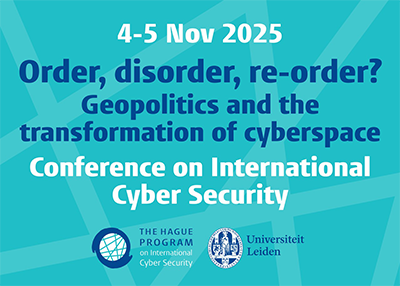
Norms-creation in Cyberspace: What International Law Can Learn From Behavioural Economics
On 21 November 2018, our Visiting Fellow Arun Sukumar will hold a lecture, followed by a networking drink.
Location: Leiden University, Campus Den Haag, Wijnhaven - room 3.60, Turfmarkt 99, The Hague
Time: 15:30-18:00 (lecture from 15:30-17:00, drinks at Brasserie from 17:00-18:00)
Registration: free, via email (info@thehaguecybernorms.nl)
The constructivist project in international relations casts norms as entities in perpetual forward motion, progressing from their creation to widespread acceptance to eventual “internalization” by states. That view is closely aligned with the dominant thinking among international lawyers, who perceive the act of treaty-making to be essentially a normative enterprise, driven by persuasion, interpretation and argumentation. This is not to ignore arguments that many IR constructivists and international lawyers have advanced of the role that structural and interest-based considerations play in norm-creation. But at its core, both epistemic communities believe in the edifying impact of norms on the international system.
Unfortunately, this line of enquiry is a methodological dead end. Constructivist accounts are yet to offer a robust or empirically rigorous model of how micro-processes of norm creation and acceptance work. More importantly, they seldom attend to the important question of why some norms don’t stick. With the 2016/17 UN GGE’s failure to agree to a consensus document, this question becomes all the more relevant in the context of cyber norms. Principles and lessons from behavioural and experimental economics may offer some insights into tracing endogenous “causal pathways” to international law creation in cyberspace.
This lecture will cover three aspects:
- Current discussions and scholarship in international law that draw on behavioural economics.
- Principles of behavioural economics and behavioural science that may help to understand acceptance and rejection of cyber norms by states and non-state actors.
- A draft proposal — using these principles — to determine markers of legality that are crucial for the universal acceptance and elevation of cyber norms into binding instruments.
Registration is free. Please register beforehand by sending an email to info@thehaguecybernorms.nl

























_400x286.png)



















































_400x286.jpg)












